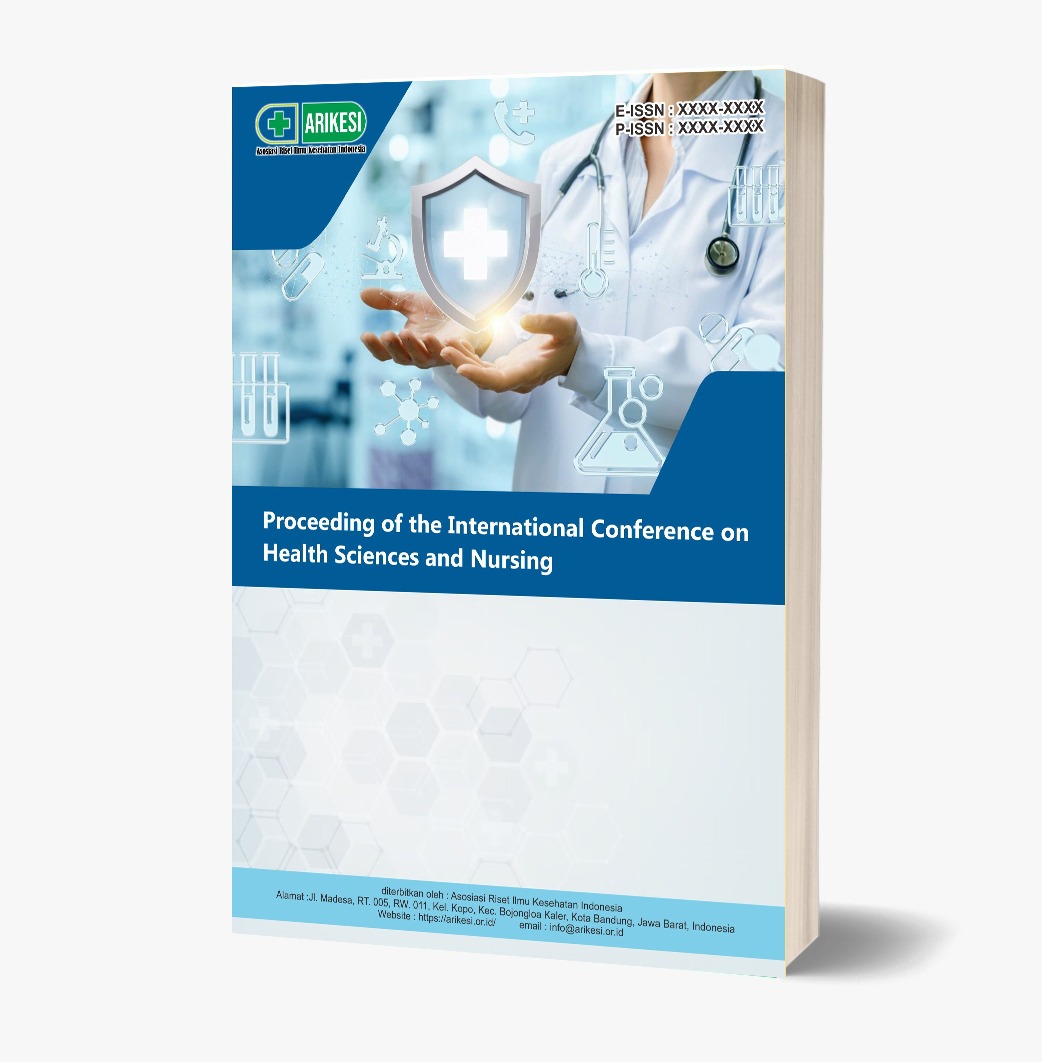Application of Ginger Aromatherapy to Overcome Main Problems Post Operative Nausea and Vomiting (PONV) in Patients Post Appendictomy
Keywords:
Appendectomy, Ginger Aromatherapy, NauseaAbstract
Background: Appendectomy is a type of surgical procedure appendicitis or the removal of an infected appendix. An appendectomy is performed because there is an infection in the appendix in the lower right quadrant of the abdomen or inflammation that occurs in the appendi. The impact of carrying out an appendectomy is PONV due to the anesthesia given. PONV causes discomfort in postoperative patients because it increases intra-abdominal pressure and increases blood pressure and the patient's heart rate. Objective: knowing that the application of ginger aromatherapy to post-appendectomy patients can decrease in Ms. G and Ms. M is experiencing nausea. Method: This research is a qualitative descriptive study with a case study approach, using 2 respondents, namely patients who experienced nausea in the Edelweis Room at TK II 04.05.01 Hospital, dr. Soedjono, Magelang City. Application is carried out 2 times a day for 3 consecutive days with an application time of 10 - 15 minutes, observing complaints of nausea pre and post implementation of the action. Results: Ginger aromatherapy can reduce complaints of post-appendectomy nausea through observing major and minor signs and symptoms regarding nausea in Ms. G and Ms. M with the same range, namely decreasing. Conclusion: The application of ginger aromatherapy is effective in reducing complaints of nausea in post-appendectomy patients.
Downloads
References
Amrina, Y., Nurjayanti, I. (2023). Pemberian Aromaterapi Jahe terhadap Pasien Gangguan Pemenuhan Nutrisi dengan Mual Muntah Post Apendektomi. Jurnal Kesehatan Amanah, 7(1), 90-106.
Arisdiani, T., Asyrofi, A. (2019). Pengaruh Intervensi Keperawatan Non Farmakologi Aromaterapi Jahe Terhadap Mual Muntah Pasien Post Operasi. In Prosiding Seminar Nasional Widya Husada.
Asay, K., et al. (2019). The use of aromatherapy in postoperative nausea and vomiting: a systematic review. Journal of PeriAnesthesia Nursing, 34(3), 502-516.
Cing, M.T.G.C., Hardiyani, T., Hardini, D.S. (2022). Faktor Yang Mempengaruhi Kejadian Mual Muntah Post Operasi. Poltekita: Jurnal Ilmu Kesehatan, 16(1), 16-21.
Fearrington, M.A., Qualls, B.W., Carey, M.G. (2019). Essential oils to reduce postoperative nausea and vomiting. Journal of PeriAnesthesia Nursing, 34(5), 1047-1053.
Jaelani. (2017). Aroma Terapi. Jakarta : Pustaka Populer Obor 22-35.
Mardalena, I., (2018). Asuhan Keperawatan Pasien Dengan Gangguan Sistem Pencernaan. yogyakarta: Pustaka Baru Press.
Nurarif, A.H., Kusuma, H. (2016). Asuhan Keperawatan Purwanto, H. 2016. Keperawatan Medikal Bedah II. Jakarta: Pusdik SDM Kesehatan. watan Praktis.
Prahastyono, A.R., Alfiyanti, D. (2022). Pemberian Aromaterapi Jahe Menurunkan Skor Mual dan Muntah pada Klien yang Menjalani Kemoterapi. Ners Muda, 3(1), 37-45.
Rimawan, I.N. (2021). Pengaruh Aroma Terapi Jahe Terhadap Keluhan Mual Muntah Pada Pasien Kanker Payudara Yang menjalani Kemoterapi Di Ruang Bima RSUD Sanjiwani Gianyar. Jurnal Medika: Karya Ilmiah Kesehatan, 6(1).
Standar Diagnosis Keperawatan Indonesia : Definisi dan Indikator Diagnostik. Jakarta Selatan: Dewan Pengurus Pusat Persatuan Perawat Nasional Indonesia.
Standar Intervensi Keperawatan Indonesia : Definisi dan Tindakan Keperawatan. Jakarta Selatan: Dewan Pengurus Pusat Persatuan Perawat Nasional Indonesia.
Syahda, S. (2022). Efektifitas Aromaterapi Jahe Terhadap Penurunan Frekuensi Mual Muntah Pada Ibu Hamil Trimester I Di Wilayah Kerja Upt Blud Puskesmas Tambang Tahun 2021. Sehat: Jurnal Kesehatan Terpadu, 1(1), 35-47.
Wainsani, S., Khoiriyah, K. (2020). Penurunan Intensitas Skala Nyeri Pasien Appendiks Post Appendiktomi Menggunakan Teknik Relaksasi Benson. Ners Muda, 1(1), 68.







